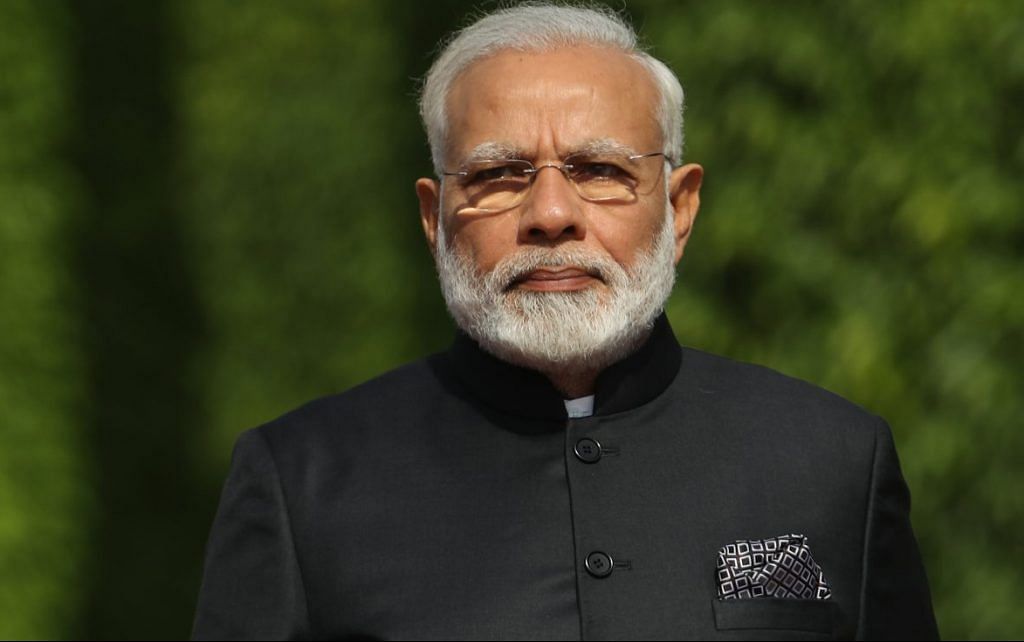Small town youth are politically more active on Facebook, like pro-Modi pages, share pro-Modi content and defend any attacks on him.
Four years after Narendra Modi stormed the hustings with unprecedented support from first-time voters, there is much speculation about whether he has sustained his charm among the youth ahead of the upcoming 2019 general election.
I have spent the last year doing field research for my forthcoming book on Indian millennials, speaking to hundreds of young Indians across big cities and small towns. While my respondents cut across socio-economic lines, I found one common trend: 2014 was about the promise of “acche din”, and 2019 is likely to be about personality instead of policy.
“Modi has never cared about being popular or well-liked. If he did, he would never have become the chief minister of Gujarat or the Prime Minister of India. He only cares about the country, and he doesn’t mind antagonising his own vote base to make India more prosperous,” a young Modi supporter from Indore said. He belonged to a merchant family who lost significant revenue after demonetisation and the flawed GST implementation.
According to figures released by the Centre for the Study of Developing Societies, youth turnout in 2009 was a paltry 54 per cent, four points lower than the national average. In 2014, it rose to 68 per cent and was two points higher than the national average. Of these young voters, the BJP’s vote share was 34.4 per cent, three points higher than its national average of 31.1 per cent. Young voters were the BJP’s largest voting bloc.
Millennials— those between the age of 20 and 35— are one of India’s largest distinct generation. Estimated to number 400 million, they are a third of the country’s population, and almost half its workforce. They are first and second-time voters, and in many ways, they are the ‘swing voters’ every party will be looking to win over in the next general election.
My respondents were from all over the country with a particular focus in Tier 2 and 3 cities.
‘Anti-corruption’ and ‘decisive’ were the most common words the millennials used about Modi. Millennials in bigger cities had mixed feelings about Modi, blaming him for the increase in hate crimes and polarisation. The young respondents in small towns were politically active on Facebook, had liked pro-Modi pages and regularly shared pro-Modi content on social media. They identified personally with him and experienced a big urge to defend any attacks on him. Many younger men in these smaller cities were also members of pro-Modi WhatsApp groups, which were hubs of pro-BJP propaganda and fake news.
After 10 years of Congress government, many young Indians did not find former Prime Minister Manmohan Singh’s leadership aspirational and wanted a complete reboot. UPA II’s litany of corruption scandals and the slowing economy did not help much either.
In Modi, young Indians saw a saviour who gets things done. His personal story—the son of a tea seller who rose to become a chief minister, regularly publicised by himself and the BJP—was hailed as an ‘Indian Dream’ success story. Modi was a refreshing break from the status quo.
Many young small towners continue to see themselves in Modi due to his outsider status in Delhi, and his use of Hindi instead of English.
While elites in New Delhi and Mumbai dismiss his surgical strikes and rhetoric against Pakistan as mere talking points, they resonate in the Hindi hinterland— especially his appeal as a strongman and a leader who doesn’t bend down to Pakistan.
Although demonetisation is acknowledged by most millennials as a failed policy, many still support it as a crackdown on corruption and black money. ‘It hurt me, but it hurt the rich guys even more’ was the dominant sentiment. Demonetisation was seen as an example of bold decision-making. As the top 1 per cent continues to amass more wealth and power in the country, Modi is seen as one of the few remaining leaders who will put an end to entrenched corruption.
The young today are looking for leaders who don’t back down. Ever since 2013, when he proclaimed he doesn’t want to become the Prime Minister, but the ‘chowkidar’ of Indians, Modi’s campaign speeches never fail to include his desire to protect Indians from enemies foreign and domestic.
Indian millennials value action and strong leadership, and Modi gives them both. Of course, there were communal undertones to a lot of the responses I heard. He shows Muslims their ‘place’ and is reviving Hindu culture, is something many said.
As millions of millennials face severe unemployment in smaller cities and the countryside – a result of massive labour supply but total lack of demand – they are turning towards Hindu nationalism and conservatism. The abundance of free time and lack of avenues to engage in productive activity leads them to blame ‘others’ – usually Muslims or Dalits – for endangering their culture and opportunities. This segment of his younger Hindu base views Modi’s controversial handling of the 2002 Godhra riots as a positive attribute.
What I found most interesting was the fact that most millennials I interviewed could not tell me about any specific Modi policy or proposal that they supported or cheered. It was almost like his policies did not matter. I even broke the journalistic code by asking leading questions with specific policies, such as ‘Make in India’ or ‘Swachh Bharat’, but I never got any enthusiastic response.
To millennials, personality matters more than policy. Modi is more of a father-like figure leading an economic and social revival in the country, even though the benefits might not be felt by everyone.
Vivan Marwaha is the author of a forthcoming book on Indian millennials. He is a graduate in international relations from Claremont McKenna College, and has worked with the American Enterprise Institute in Washington DC, and the Observer Research Foundation in Delhi. His Twitter handle is @VivanMarwaha
